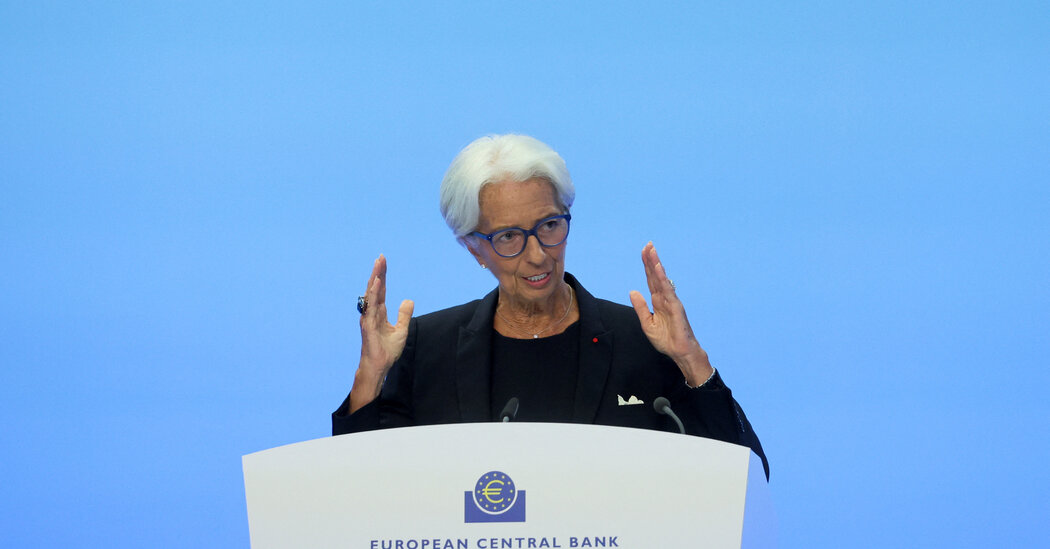In addition to announcing its first rate hike in 11 years, the European Central Bank introduced a new policy tool on Thursday to limit borrowing cost differentials among the 19 members of the eurozone.
With Italy’s rapidly rising borrowing costs in recent months, there has been a growing focus on whether bond market movements were orderly and in line with a country’s economic fundamentals or disorderly and threatening the effectiveness of monetary policy.
This new instrument, called the Transmission Protection Instrument, aims to halt disorderly movements in government bond markets. In short, the new instrument will allow the ECB to buy bonds from countries that it believes are experiencing an unjustified deterioration in financing conditions. The size of bond purchases depends on the severity of the risks and is not subject to restrictions, the bank said. It buys government debt with maturities between 1 and 10 years.
The bank said this policy tool was one of the reasons it was able to raise interest rates more strongly than expected on Thursday, as it would ensure a smooth transfer of its policy targets.
But like a previous policy tool announced in the depths of the 2012 European debt crisis, there is a hope that the tool’s announcement could only calm bond markets, and it will never have to be used.
“I can assure you that we prefer not to use the instrument,” said Christine Lagarde, ECB president. “But if we have to use it, we won’t hesitate.”
The decision to use the instrument would be taken by the 25-member Governing Council, which consists of the heads of the 19 national central banks of the eurozone and a six-member board of directors, without disclosing specific details about what the activation would entail. can cause. Each country would have to meet certain criteria to benefit from the policy instrument, including a sustainable public debt trajectory and “sound and sustainable” economic policies consistent with the plans used to access the recovery and European Union resilience funds.
There is “enough room for Italy” or other southern European economies such as Greece, Spain and Portugal, to fail the eligibility criteria, Claus Vistesen, an economist at Pantheon Macroeconomics, wrote in a note to clients. “The main question is how rigorously these criteria will be enforced.”
He added that “time will tell, but we are encouraged” that the bank would interpret its criteria loosely.

